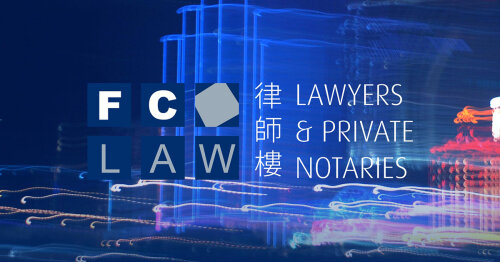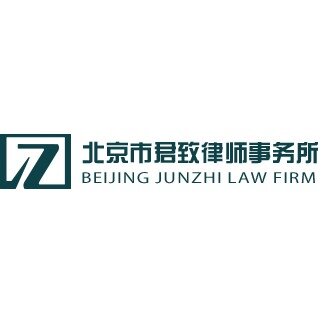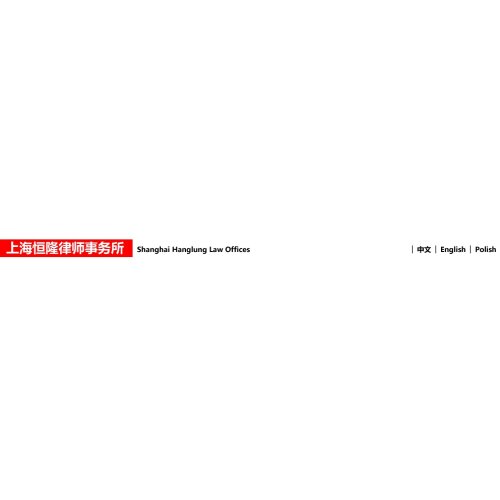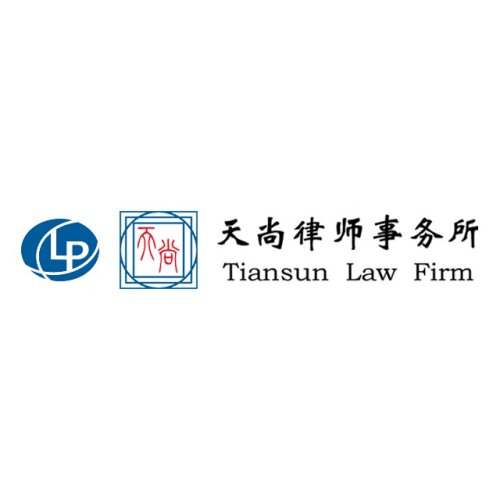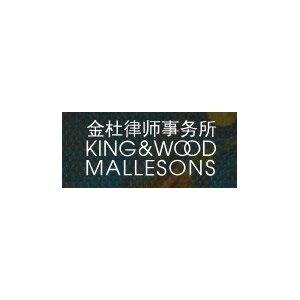Best Corporate & Commercial Lawyers in China
Share your needs with us, get contacted by law firms.
Free. Takes 2 min.
Or refine your search by selecting a city:
List of the best lawyers in China
About Corporate & Commercial Law in China
Corporate and commercial law in China is the cornerstone of the country's vibrant business landscape. This legal field encompasses laws and regulations that govern how companies are formed, operated, merged, acquired, dissolved, and held accountable. It also covers commercial activities such as contracts, foreign investment, intellectual property, mergers and acquisitions, and dispute resolution. As China continues its economic growth and integrates with global markets, understanding local laws and regulatory requirements is essential for both domestic and international businesses.
Why You May Need a Lawyer
You may need a corporate and commercial lawyer in China for a variety of reasons. Legal counsel can help you navigate the complexities of starting a company, structuring business deals, handling corporate governance, protecting intellectual property, and complying with local investment regulations. Lawyers are also crucial during mergers and acquisitions, contract negotiations, and partnership formations. Dispute resolution, labor issues, anti-monopoly compliance, and tax matters are other areas where specialized advice can make a significant difference. Whether you are a foreign investor or a local entrepreneur, having legal guidance helps ensure your commercial interests are protected and your business operates within the frameworks set by Chinese law.
Local Laws Overview
China's corporate and commercial legal environment is characterized by a combination of statutes, administrative regulations, and judicial interpretations. The Company Law governs how businesses are incorporated, operated, and liquidated, covering structures such as limited liability companies (LLCs), joint-stock companies, and foreign-invested enterprises. The Contract Law provides guidelines for the formation, execution, and enforcement of commercial contracts.
The Foreign Investment Law, enacted in recent years, shapes the regulations for foreign-invested enterprises and streamlines approval procedures. The Anti-Monopoly Law regulates fair competition and prohibits monopolistic practices. In addition, laws surrounding intellectual property, cybersecurity, tax, and labor have undergone significant reforms to align with international standards. State-owned enterprises (SOEs) also operate under unique legal frameworks. Regulatory bodies such as the State Administration for Market Regulation (SAMR) and the Ministry of Commerce (MOFCOM) oversee compliance and enforcement in various aspects of corporate and commercial activities.
Frequently Asked Questions
What are the main types of business entities in China?
Common options include limited liability companies (LLCs), joint-stock companies, wholly foreign-owned enterprises (WFOEs), joint ventures, and representative offices. Each has distinct requirements, advantages, and restrictions.
How long does it take to set up a company in China?
The set-up process can take a few weeks to several months, depending on the type of entity, business location, and the need for specialized licenses or permits.
Are foreigners allowed to own companies in China?
Yes, the Foreign Investment Law now allows foreign investors to establish wholly foreign-owned enterprises (WFOEs) or participate in joint ventures, though certain industries remain restricted or prohibited.
What should I watch out for when signing contracts in China?
It is important to ensure contracts are written in Chinese, include clear terms, specify dispute resolution methods, and are compliant with Chinese law. Contracts often need to be registered with relevant authorities.
How are commercial disputes resolved in China?
Disputes can be resolved through negotiation, mediation, arbitration, or litigation. Arbitration, especially through bodies like the China International Economic and Trade Arbitration Commission (CIETAC), is commonly used for cross-border matters.
What are the main compliance requirements for companies in China?
Businesses must comply with tax filings, annual inspections, labor regulations, environment protection standards, and anti-bribery laws. Non-compliance can result in penalties or loss of business licenses.
How are mergers and acquisitions handled in China?
Mergers and acquisitions are regulated by the Company Law, Foreign Investment Law, and sometimes the Anti-Monopoly Law. They often require approval from regulatory authorities and careful due diligence.
What are the restrictions on repatriating profits?
Profits may be remitted abroad after fulfilling tax obligations. Currency controls and documentation requirements must be observed, and approval from foreign exchange authorities is often necessary.
Is intellectual property well protected in China?
Intellectual property protection has improved significantly in recent years. Registration of trademarks, patents, and copyrights is essential, and legal action can be taken against infringements.
How can a lawyer help with regulatory compliance?
A qualified lawyer can interpret changing regulations, assist with filings, ensure proper licenses are obtained, and help businesses maintain ongoing compliance to avoid fines and disruptions.
Additional Resources
There are several resources and organizations that offer guidance on corporate and commercial matters in China:
- State Administration for Market Regulation (SAMR) - Regulates market practices, company registration, and fair competition.
- Ministry of Commerce (MOFCOM) - Oversees foreign investment regulations and approvals.
- China Council for the Promotion of International Trade (CCPIT) - Offers arbitration and trade dispute resolution services.
- China International Economic and Trade Arbitration Commission (CIETAC) - Provides commercial arbitration services for domestic and international disputes.
- Local bar associations and legal aid centers across major Chinese cities provide referrals and limited advisory services.
Next Steps
If you need legal assistance with corporate and commercial matters in China, consider the following actions:
- Identify your specific needs, such as company formation, contract review, M&A, regulatory compliance, or dispute resolution.
- Consult with a reputable law firm or licensed lawyer who specializes in corporate and commercial law in China.
- Prepare necessary documents or information related to your business or legal issue to facilitate a productive consultation.
- Stay informed about changes in local legislation and regulatory policy that may impact your business operations.
- Follow up on legal advice with ongoing compliance efforts and regular legal check-ups to safeguard your commercial interests.
Starting early and seeking professional support can protect your investment and ensure your business activities in China proceed efficiently and lawfully.
Lawzana helps you find the best lawyers and law firms in China through a curated and pre-screened list of qualified legal professionals. Our platform offers rankings and detailed profiles of attorneys and law firms, allowing you to compare based on practice areas, including Corporate & Commercial, experience, and client feedback.
Each profile includes a description of the firm's areas of practice, client reviews, team members and partners, year of establishment, spoken languages, office locations, contact information, social media presence, and any published articles or resources. Most firms on our platform speak English and are experienced in both local and international legal matters.
Get a quote from top-rated law firms in China — quickly, securely, and without unnecessary hassle.
Disclaimer:
The information provided on this page is for general informational purposes only and does not constitute legal advice. While we strive to ensure the accuracy and relevance of the content, legal information may change over time, and interpretations of the law can vary. You should always consult with a qualified legal professional for advice specific to your situation.
We disclaim all liability for actions taken or not taken based on the content of this page. If you believe any information is incorrect or outdated, please contact us, and we will review and update it where appropriate.
Browse corporate & commercial law firms by service in China
China Attorneys in related practice areas.
Browse corporate & commercial law firms by city in China
Refine your search by selecting a city.



